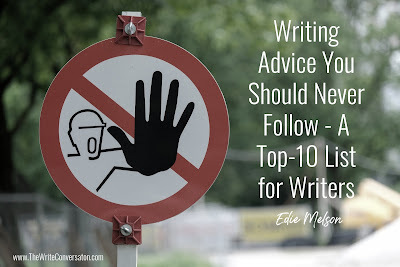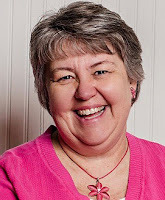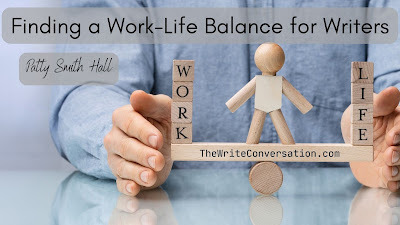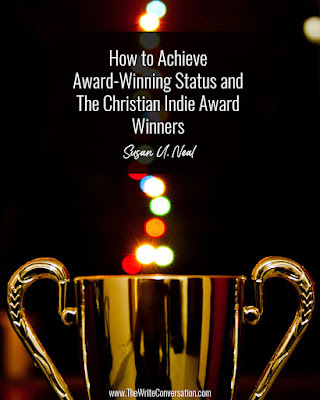Edie Melson's Blog, page 88
May 23, 2023
Don���t Place a Protective Shield Around the Characters You Write

by DiAnn Mills @DiAnnMills
Writers who place a protective shield around their heroes and heroines set themselves up for publishing doom. Their stories fail reader appeal because the character has no vulnerability. All our characters must have fears and weaknesses to be real and keep the reader engaged.
Writing fiction focuses on entertaining readers with a story about a character who has a goal to reach or a problem to solve. The story journeys the character and the reader through scene after scene of rising action with incredible stakes. The process forces the character to endure challenges, making the goal or problem solved super worth the struggle. But there���s a bonus: the character changes and grows into a better person.
All the above is impossible to achieve if the character isn���t submerged in a cauldron of physical, mental, and spiritual difficulties. I���m not talking about a tepid dip, but a boiling bath of disaster. The genre doesn���t matter. All stories must contain rising tension with characters who face a high likelihood of failure.
If a true hero or heroine is the character with the most to lose and the most to gain by obtaining the goal, then why place them in a suit of armor? They need a quick mind, courage, determination, and pitted against an antagonist who is stronger, smarter, and has more weapons.
Sometimes a writer fashions a character after a real person. All our character development comes from those whom we���ve met. Their behaviors are quirky, funny, sobering, filled with wisdom, and sometimes evil. But our characters aren���t real. That bears repeating: the characters in our minds are not real. They must endure the worst abyss in unpredictable, unexpected, and believable ways.
Even our beloved superheroes have protective shields with a few imperfections:Superman feared kryptonite.Spiderman feared running out of web fluid.The Invisible Woman feared dust.Wolverine feared magnets.Hulk feared too much anger.The Human Torch feared overheating.Iron Man feared running out of batteries for his suit.
But none of those fears stopped the superhero from saving the world. Neither should a dose of reality stop the hero or heroine. They are motivated by something beyond themselves, a need to better the world and the people living there.
Do protective shields work for the writer? In short, no. We must do the work and face our fears and weaknesses to create a masterful story.
For those of us who write from a Christian worldview, does embracing our faith guarantee we won���t experience tough times? Absolutely not! God can���t change us unless He allows us to walk through His refining fire. The result builds our spiritual muscles. Just like our characters must build muscles that make them stronger physically, mentally, and spiritually.
Including a protective shield isn���t a character builder, so delete it from your character���s portfolio . . . unless the character lived in a protective shield before chapter one line one of your story, and that character learned the hard way that shields, suits of armor, or another person cannot protect them from surviving the world���s challenges.
Are you ready to remove suits of protection from your characters so readers experience a page-turner?
TWEETABLEDon���t Place a Protective Shield Around the Characters You Write from author @DiAnnMills on @EdieMelson (Click to Tweet)
 DiAnn Mills is a bestselling author who believes her readers should expect an adventure. She creates action-packed, suspense-filled novels to thrill readers. Her titles have appeared on the CBA and ECPA bestseller lists; won two Christy Awards; and been finalists for the RITA, Daphne Du Maurier, Inspirational Readers��� Choice, and Carol award contests.
DiAnn Mills is a bestselling author who believes her readers should expect an adventure. She creates action-packed, suspense-filled novels to thrill readers. Her titles have appeared on the CBA and ECPA bestseller lists; won two Christy Awards; and been finalists for the RITA, Daphne Du Maurier, Inspirational Readers��� Choice, and Carol award contests. She is the former director of the Blue Ridge Mountain Christian Writers Conference, Mountainside Marketing Retreat, and Mountainside Novelist Retreat with social media specialist Edie Melson. Connect here: DiAnnMills.com
Don’t Place a Protective Shield Around the Characters You Write

by DiAnn Mills @DiAnnMills
Writers who place a protective shield around their heroes and heroines set themselves up for publishing doom. Their stories fail reader appeal because the character has no vulnerability. All our characters must have fears and weaknesses to be real and keep the reader engaged.
Writing fiction focuses on entertaining readers with a story about a character who has a goal to reach or a problem to solve. The story journeys the character and the reader through scene after scene of rising action with incredible stakes. The process forces the character to endure challenges, making the goal or problem solved super worth the struggle. But there’s a bonus: the character changes and grows into a better person.
All the above is impossible to achieve if the character isn’t submerged in a cauldron of physical, mental, and spiritual difficulties. I’m not talking about a tepid dip, but a boiling bath of disaster. The genre doesn’t matter. All stories must contain rising tension with characters who face a high likelihood of failure.
If a true hero or heroine is the character with the most to lose and the most to gain by obtaining the goal, then why place them in a suit of armor? They need a quick mind, courage, determination, and pitted against an antagonist who is stronger, smarter, and has more weapons.
Sometimes a writer fashions a character after a real person. All our character development comes from those whom we’ve met. Their behaviors are quirky, funny, sobering, filled with wisdom, and sometimes evil. But our characters aren’t real. That bears repeating: the characters in our minds are not real. They must endure the worst abyss in unpredictable, unexpected, and believable ways.
Even our beloved superheroes have protective shields with a few imperfections:Superman feared kryptonite.Spiderman feared running out of web fluid.The Invisible Woman feared dust.Wolverine feared magnets.Hulk feared too much anger.The Human Torch feared overheating.Iron Man feared running out of batteries for his suit.
But none of those fears stopped the superhero from saving the world. Neither should a dose of reality stop the hero or heroine. They are motivated by something beyond themselves, a need to better the world and the people living there.
Do protective shields work for the writer? In short, no. We must do the work and face our fears and weaknesses to create a masterful story.
For those of us who write from a Christian worldview, does embracing our faith guarantee we won’t experience tough times? Absolutely not! God can’t change us unless He allows us to walk through His refining fire. The result builds our spiritual muscles. Just like our characters must build muscles that make them stronger physically, mentally, and spiritually.
Including a protective shield isn’t a character builder, so delete it from your character’s portfolio . . . unless the character lived in a protective shield before chapter one line one of your story, and that character learned the hard way that shields, suits of armor, or another person cannot protect them from surviving the world’s challenges.
Are you ready to remove suits of protection from your characters so readers experience a page-turner?
TWEETABLEDon’t Place a Protective Shield Around the Characters You Write from author @DiAnnMills on @EdieMelson (Click to Tweet)
 DiAnn Mills is a bestselling author who believes her readers should expect an adventure. She creates action-packed, suspense-filled novels to thrill readers. Her titles have appeared on the CBA and ECPA bestseller lists; won two Christy Awards; and been finalists for the RITA, Daphne Du Maurier, Inspirational Readers’ Choice, and Carol award contests.
DiAnn Mills is a bestselling author who believes her readers should expect an adventure. She creates action-packed, suspense-filled novels to thrill readers. Her titles have appeared on the CBA and ECPA bestseller lists; won two Christy Awards; and been finalists for the RITA, Daphne Du Maurier, Inspirational Readers’ Choice, and Carol award contests. She is the former director of the Blue Ridge Mountain Christian Writers Conference, Mountainside Marketing Retreat, and Mountainside Novelist Retreat with social media specialist Edie Melson. Connect here: DiAnnMills.com
May 22, 2023
Writing Advice You Should Never Follow - A Top-10 List for Writers

by Edie Melson @EdieMelson
Have you noticed the phenomenon that occurs when you confess you���re writing a book?
It doesn���t matter if you���re an established author with thirty-plus books under your belt, or someone working on a first novel.
Announce you���re writing a book, and you���ve opened yourself up for unsolicited advice.
Writing Advice You Should NEVER Follow
1. Write what you know. On the surface, this may sound like savvy advice. It���s not. With the advent of the Internet, we can do the research and find out almost anything. We're no longer limited to our own personal experience.2. Write every day. Again, it sounds good. Surely someone who���s serious about something will do it every day. Truthfully, we all work better when we take time to relax and let our minds rest.3. Never read in the genre you���re writing. I���ve never found reading other things in the genre I'm writing to inhibit my output or the quality of my work. I���ve found that reading keeps the writing fire stoked. Just be sure you���re not reading instead of writing.4. Write dialogue like you talk. We all want the dialogue we write to read like a real conversation. But the smart writer knows that means taking the boring parts out. Listen to a real conversation or better yet, record one. Then write it out. You���ll see how truly awful it is.5. Never use clich��s. Never is NEVER good advice when it comes to writing. Sure you want to avoid clich��s���in narrative. But the fact is, we all use them occasionally. Judiciously sprinkling them throughout dialogue can give your writing a familiar flavor that helps the reader connect with your characters.6. Never use the verb was, it���s passive. Sometimes the word was is passive, sometimes is just past tense. How to tell? The quickest way is to see if it���s helping another verb, like, She was sleeping. That���s almost always passive. A better option would be, She slept.7. Always outline before you write. Some people are known as plotters���or those who prefer to outline their story before writing. Others, referred to as pantsers or intuitive writers, like to discover the story as they write. The best way to do it? The way that works for you.8. Real writers don���t have to do rewrites. I���ve never spoken to a writer who didn���t need to do rewriters. I���ve heard rumors, but I suspect I���m more likely to get an in-focus picture of a Sasquatch than meet one of those elusive novelists.9. Always write in the same place. Most of us need variety, and that includes the place we work. Sometimes I write at my desk, others at the dining room table, and on good days, the screened porch out back.10. Don���t begin to build a platform until you have a contract. This is the worst advice I���ve ever heard, and there are two major reasons. First, if you wait until you have a contract to build your platform, you���ll probably have a hard time getting said platform. Second, you will be way behind. It takes a good year to a year-and-a-half to build a viable platform. As you may have noticed, the first clue the advice you���re hearing is suspect are the use of the words ALWAYS and/or NEVER.
Now it���s your turn, what���s the worst writing advice you���ve ever heard?
Don���t forget to join the conversation!Blessings
TWEETABLEWriting Advice You Should Never Follow - A Top-10 List for Writers from @EdieMelson (Click to Tweet)
 Edie Melson is a woman of faith with ink-stained fingers observing life through the lens of her camera. No matter whether she���s talking to writers, entrepreneurs, or readers, her first advice is always ���Find your voice, live your story.��� As an author, blogger, and speaker she���s encouraged and challenged audiences across the country and around the world. Her numerous books reflect her passion to help others develop the strength of their God-given gifts and apply them to their lives. Connect with her on her website, through Facebook, Twitter and Instagram.
Edie Melson is a woman of faith with ink-stained fingers observing life through the lens of her camera. No matter whether she���s talking to writers, entrepreneurs, or readers, her first advice is always ���Find your voice, live your story.��� As an author, blogger, and speaker she���s encouraged and challenged audiences across the country and around the world. Her numerous books reflect her passion to help others develop the strength of their God-given gifts and apply them to their lives. Connect with her on her website, through Facebook, Twitter and Instagram.
May 21, 2023
Creating Believable Characters is a Challenging & Rewarding Part of Being a Writer

by Ane Mulligan @AneMulligan
I've heard it said, "Psychologists are analysts; writers are psychological engineers. They use psychology to engineer story characters."
Characterization is complex. Among other things, writers need to know how to engineer characters, design character arcs, weave sympathy and empathy, set up character conflict, show and reveal character, and reveal backstory. It's enough to cross your eyes and cause the most intrepid author to shudder.
In other words, we must make our main characters three-dimensional. A side note: Minor characters may be two-dimensional (and stereotype), thus making the main character stand out. Much like an artist does in a painting. The background is flat, and the foreground had more dimension and shadow, so it "pops."
An easy way to give your character a one-dimensional profile in the first draft, is assigning one of the Big Five character traits to them.
The Big Five theory is a well-researched psychological theory. According to Wikipedia , the Big Five is a suggested taxonomy, or grouping, for personality traits, developed from the 1980s onward in psychological trait theory.
The theory identified five factors by labels for the US English speaking population, typically referred to as:1. Openness to experience (inventive/curious vs. consistent/cautious)2. Conscientiousness (efficient/organized vs. extravagant/careless)3. Extraversion (outgoing/energetic vs. solitary/reserved)4. Agreeableness (friendly/compassionate vs. critical/rational)5. Neuroticism (sensitive/nervous vs. resilient/confident)
BUT … there's that big but again … as I was saying that way involves a lot of rewriting to weave in the other characteristics that make a character complex.
I've taken the DISC personality test (probably one of the most popular), read the Truity Enneagram (9 personality types), studied the 16 Personality Factors, the HEXACO model, … and more. These come from the 23 most popular personality tests list, and if you are interested, you can access the website here for the list . When I've taken those tests, I never land where people think I will, plus I cross list - we won't go into that.
The point is, for some, this way works to engineer their characters. But for me, not so much. I can't build a character according to a personality test that tells me how she will respond to things. Mine come out like a Barbie doll with no individuality.
That's why I like to interview my character. While I can assign some traits to her or him up front, it's when I get to their backstory, they give up their secrets. I call it writing a stream of consciousness backstory. I simply sit down at my computer and begin with I (the character) was born … and my God-given imagination takes over.
Two or three pages later, I've got secrets, dark wounds, and those things that affect her worldview. Add that information to the LIE she believes (which gives me her motivation), and I end up with my three dimensional character, one who grows throughout the story. And yes sometimes, a new facet emerges that I have to add or go back and edit in, but for me, this generally works best.
In my first published book, Chapel Springs Revival, it was in the back story the character of Claire's great-aunt Lola was born. While she died when Claire was a child, she and her life influenced Claire throughout the book.
"…The first morning Great-aunt Lola's husband didn't kiss her goodbye, she left him. Went off to Hollywood and became a big star in silent movies. … Lola Mitchell never took second place to anyone or anything. She lived the high life, all right. Presidents and princes wined and dined her, while all Claire got was a TV tray in front of a ball game."
And that set up the situation for the story.
For In High Cotton, I had to go back four generations to discover why Duchess was the way she was, when her sister, Maggie, was so different. What I learned added so much to the story—no backstory revealed in the book, except for a sentence or two more than halfway through.
"My big sister by twenty-two months is now my dependent. I swanney, if Mama were still alive I’d wring her neck for not teaching Duchess anything but manners."
I learned much more in their backstory, but that was the extent of what went into the book as far as direct mention. The rest played out visibly in the characters.
What I do know and love is how each writer has a different method of engineering their characters. If we're lucky—blessed—the story will touch hearts, giving some reader a glimpse into a better way.
Since we never stop learning, join the conversation and share what works for you to engineer your characters.
TWEETABLECreating Believable Characters is a Challenging & Rewarding Part of Being a Writer, tips from author @AneMulligan on @EdieMelson (Click to Tweet)
 Ane Mulligan lives life from a director’s chair, both in theatre and at her desk creating novels. Entranced with story by age three, at five, she saw PETER PAN onstage and was struck with a fever from which she never recovered—stage fever. One day, her passions collided, and an award-winning, bestselling novelist immerged. She believes chocolate and coffee are two of the four major food groups and lives in Sugar Hill, GA, with her artist husband and a rascally Rottweiler. Find Ane on her website, Amazon Author page, Facebook, Instagram,Pinterest, The Write Conversation, and Blue Ridge Mountains Christian Writers Conference Blog.
Ane Mulligan lives life from a director’s chair, both in theatre and at her desk creating novels. Entranced with story by age three, at five, she saw PETER PAN onstage and was struck with a fever from which she never recovered—stage fever. One day, her passions collided, and an award-winning, bestselling novelist immerged. She believes chocolate and coffee are two of the four major food groups and lives in Sugar Hill, GA, with her artist husband and a rascally Rottweiler. Find Ane on her website, Amazon Author page, Facebook, Instagram,Pinterest, The Write Conversation, and Blue Ridge Mountains Christian Writers Conference Blog.
May 20, 2023
Eight Items a Writer Should Pack for a Writer���s Conference

by Tammy Karasek @tickledpinktam
In person writing conferences are back and underway for 2023. While there are some still online, the option to gather together again with other writers in real life is a welcome opportunity in this profession. To meet with groups of people who understand the ups and downs of this profession is a good thing���yes, even if you���re an introvert.
If you plan to attend an upcoming conference, I want to share some tips as you pack what you think you���ll need. Whether this is your first time or your tenth time, I hope my tips will assist you in your preparations. There are plenty of lists of what to pack out there, but what I have to offer is probably not what you would expect a packing list to have. My list includes items one might not think to take.
The list below is not in order of most important, they are all important.
Let���s get to that list of tips:
1. First item to pack is your open mind. You may hear a suggestion or helpful hint from a faculty member, editor or agent. Be open to receive their suggestion. Write it down. Let it sink in. Once home when you read through all your conference notes, it may make more sense and could very well be your next best step in your writing or speaking path.
2. Next, turn those listening ears on. You���ve opened your mind to receive a message of instruction, make sure your listening ears are truly listening to what is said. Again, make those notes. Something not quite clear? Put an X beside it and when it���s time for questions, request clarification. A teacher is excited when a student wants to learn.
3. Make sure you pack an extra dose of patience. Elevators may seem to take forever. The person with the appointment before you may be trying to take more than their allotted fifteen minutes. You have to stand a while for the food line. These all happen, but it���s not personal���look around, there are people in the same position as you and it���s normal. Slow down, strike up a conversation with someone else waiting. I love to encourage new conference attendees���these wait times are your best network appointments. This is a great time to make a new writer friend or two.
4. A willing heart. Be ready for God to speak through others at a conference. Whether it���s through a message from a keynote speaker, your teacher or maybe even someone talking to another person at the table. God can and will use different ways to speak to us. Have a prayer waiting for an answer about your next step? The next words spoken may be that answer. Be willing to hear God whisper His answer to you.
5. Head up, eyes open. Be mindful to keep your head up as you walk and your eyes open. You never know when you may pass someone who is fighting tears or nervous because they���re about to pitch their book idea to an editor or agent for the very first time. Do you remember how that felt? YOU may be exactly what they need and God has placed you there, in that moment, to stop them and ask if they are okay or need a quick prayer. I did this once, totally freaked me out when the person said, ���Yes, I���d love for someone to pray these butterflies away. They���re making want to vomit.��� I jumped out of my comfort zone, prayed for them right there���out loud���then asked if I could hug them, and then did. I also prayed for them during their fifteen-minute appointment. So, head up, eyes open.
6. Willing to receive. While we all want to serve and love on others, but remember to not block someone else���s blessing by not receiving others��� offers to help or pray for you. There are no hero buttons handed out at the end of a writers��� conference for those that throw up a hand and said, ���No thanks, I don���t need help���I���ve got this.��� Do they really? Yeah, probably not. Allow others to come along side of you and receive their encouragement or assistance. Don���t do this alone.
7. Last, pack a huge dose of excitement. Conferences can be stressful, especially for a first-timer. Yet they can be filled with great instruction, encouragement and fun if you remember that these writers��� conferences are organized and planned with you in mind. They want to serve and help you as you walk the path of your writing journey. They are filled with faculty and staff who are eager to see the expressions on your face when a new point finally makes sense to you. As a teacher, I have no greater joy than to look out into my class of writers and see the face of a student who now understands the concept of what was being taught. Best. Moment!
There are so many more items I could come up with for you, like bring snacks and drinks for your room���and chocolate to make friends. I wanted to give you some of the important ones I feel will help you have a successful conference experience.
Some of you reading this post have gone to a conference before, so what other kinds of advice would you add to the list above? Please share in the comments below, we���d all love to hear your tips.
Oh, but don���t forget number 8:
8. You���ll want to pack those tummy meds���try as we might, sometimes those butterflies still want to show up when we least expect them.
TWEETABLEEight Items a Writer Should Pack for a Writer's Conference by @TickledPinkTam on @EdieMelson (Click to Tweet)
 Tammy Karasek uses humor and wit to bring joy and hope to every aspect in life. Her past, filled with bullying and criticism from family, drives her passion to encourage and inspire others and give them The Reason to smile. She���s gone from down and defeated to living a ���Tickled Pink��� life as she believes there���s always a giggle wanting to come out! A writer of Romance���with a splash of sass. She���s also The Launch Team Geek helping authors launch their books and also a Virtual Assistant for several best-selling authors. She is now under contract for her book on Launch Teams due to release Fall 2023. Her work was also published in a Divine Moments Compilation Book���Cool-inary Moments. She���s also the Social Media Manager for the Blue Ridge Mountains Christian Writers Conference, Founding President and current Vice-President of ACFW Upstate SC, and Founding President of Word Weavers Upstate SC. She���s a writing team member for The Write Conversation Blog, Novel Academy, MBT Monday Devotions, The Write Editing and more. Connect with Tammy at HTTPS://WWW.TAMMYKARASEK.COM.
Tammy Karasek uses humor and wit to bring joy and hope to every aspect in life. Her past, filled with bullying and criticism from family, drives her passion to encourage and inspire others and give them The Reason to smile. She���s gone from down and defeated to living a ���Tickled Pink��� life as she believes there���s always a giggle wanting to come out! A writer of Romance���with a splash of sass. She���s also The Launch Team Geek helping authors launch their books and also a Virtual Assistant for several best-selling authors. She is now under contract for her book on Launch Teams due to release Fall 2023. Her work was also published in a Divine Moments Compilation Book���Cool-inary Moments. She���s also the Social Media Manager for the Blue Ridge Mountains Christian Writers Conference, Founding President and current Vice-President of ACFW Upstate SC, and Founding President of Word Weavers Upstate SC. She���s a writing team member for The Write Conversation Blog, Novel Academy, MBT Monday Devotions, The Write Editing and more. Connect with Tammy at HTTPS://WWW.TAMMYKARASEK.COM.Eight Items a Writer Should Pack for a Writer’s Conference

by Tammy Karasek @tickledpinktam
In person writing conferences are back and underway for 2023. While there are some still online, the option to gather together again with other writers in real life is a welcome opportunity in this profession. To meet with groups of people who understand the ups and downs of this profession is a good thing—yes, even if you’re an introvert.
If you plan to attend an upcoming conference, I want to share some tips as you pack what you think you’ll need. Whether this is your first time or your tenth time, I hope my tips will assist you in your preparations. There are plenty of lists of what to pack out there, but what I have to offer is probably not what you would expect a packing list to have. My list includes items one might not think to take.
The list below is not in order of most important, they are all important.
Let’s get to that list of tips:
1. First item to pack is your open mind. You may hear a suggestion or helpful hint from a faculty member, editor or agent. Be open to receive their suggestion. Write it down. Let it sink in. Once home when you read through all your conference notes, it may make more sense and could very well be your next best step in your writing or speaking path.
2. Next, turn those listening ears on. You’ve opened your mind to receive a message of instruction, make sure your listening ears are truly listening to what is said. Again, make those notes. Something not quite clear? Put an X beside it and when it’s time for questions, request clarification. A teacher is excited when a student wants to learn.
3. Make sure you pack an extra dose of patience. Elevators may seem to take forever. The person with the appointment before you may be trying to take more than their allotted fifteen minutes. You have to stand a while for the food line. These all happen, but it’s not personal—look around, there are people in the same position as you and it’s normal. Slow down, strike up a conversation with someone else waiting. I love to encourage new conference attendees—these wait times are your best network appointments. This is a great time to make a new writer friend or two.
4. A willing heart. Be ready for God to speak through others at a conference. Whether it’s through a message from a keynote speaker, your teacher or maybe even someone talking to another person at the table. God can and will use different ways to speak to us. Have a prayer waiting for an answer about your next step? The next words spoken may be that answer. Be willing to hear God whisper His answer to you.
5. Head up, eyes open. Be mindful to keep your head up as you walk and your eyes open. You never know when you may pass someone who is fighting tears or nervous because they’re about to pitch their book idea to an editor or agent for the very first time. Do you remember how that felt? YOU may be exactly what they need and God has placed you there, in that moment, to stop them and ask if they are okay or need a quick prayer. I did this once, totally freaked me out when the person said, “Yes, I’d love for someone to pray these butterflies away. They’re making want to vomit.” I jumped out of my comfort zone, prayed for them right there—out loud—then asked if I could hug them, and then did. I also prayed for them during their fifteen-minute appointment. So, head up, eyes open.
6. Willing to receive. While we all want to serve and love on others, but remember to not block someone else’s blessing by not receiving others’ offers to help or pray for you. There are no hero buttons handed out at the end of a writers’ conference for those that throw up a hand and said, “No thanks, I don’t need help—I’ve got this.” Do they really? Yeah, probably not. Allow others to come along side of you and receive their encouragement or assistance. Don’t do this alone.
7. Last, pack a huge dose of excitement. Conferences can be stressful, especially for a first-timer. Yet they can be filled with great instruction, encouragement and fun if you remember that these writers’ conferences are organized and planned with you in mind. They want to serve and help you as you walk the path of your writing journey. They are filled with faculty and staff who are eager to see the expressions on your face when a new point finally makes sense to you. As a teacher, I have no greater joy than to look out into my class of writers and see the face of a student who now understands the concept of what was being taught. Best. Moment!
There are so many more items I could come up with for you, like bring snacks and drinks for your room—and chocolate to make friends. I wanted to give you some of the important ones I feel will help you have a successful conference experience.
Some of you reading this post have gone to a conference before, so what other kinds of advice would you add to the list above? Please share in the comments below, we’d all love to hear your tips.
Oh, but don’t forget number 8:
8. You’ll want to pack those tummy meds—try as we might, sometimes those butterflies still want to show up when we least expect them.
TWEETABLEEight Items a Writer Should Pack for a Writer's Conference by @TickledPinkTam on @EdieMelson (Click to Tweet)
 Tammy Karasek uses humor and wit to bring joy and hope to every aspect in life. Her past, filled with bullying and criticism from family, drives her passion to encourage and inspire others and give them The Reason to smile. She’s gone from down and defeated to living a “Tickled Pink” life as she believes there’s always a giggle wanting to come out! A writer of Romance—with a splash of sass. She’s also The Launch Team Geek helping authors launch their books and also a Virtual Assistant for several best-selling authors. She is now under contract for her book on Launch Teams due to release Fall 2023. Her work was also published in a Divine Moments Compilation Book—Cool-inary Moments. She’s also the Social Media Manager for the Blue Ridge Mountains Christian Writers Conference, Founding President and current Vice-President of ACFW Upstate SC, and Founding President of Word Weavers Upstate SC. She’s a writing team member for The Write Conversation Blog, Novel Academy, MBT Monday Devotions, The Write Editing and more. Connect with Tammy at HTTPS://WWW.TAMMYKARASEK.COM.
Tammy Karasek uses humor and wit to bring joy and hope to every aspect in life. Her past, filled with bullying and criticism from family, drives her passion to encourage and inspire others and give them The Reason to smile. She’s gone from down and defeated to living a “Tickled Pink” life as she believes there’s always a giggle wanting to come out! A writer of Romance—with a splash of sass. She’s also The Launch Team Geek helping authors launch their books and also a Virtual Assistant for several best-selling authors. She is now under contract for her book on Launch Teams due to release Fall 2023. Her work was also published in a Divine Moments Compilation Book—Cool-inary Moments. She’s also the Social Media Manager for the Blue Ridge Mountains Christian Writers Conference, Founding President and current Vice-President of ACFW Upstate SC, and Founding President of Word Weavers Upstate SC. She’s a writing team member for The Write Conversation Blog, Novel Academy, MBT Monday Devotions, The Write Editing and more. Connect with Tammy at HTTPS://WWW.TAMMYKARASEK.COM.May 19, 2023
Finding a Work-Life Balance for Writers

by Patty Smith Hall @PattySmithHall
I love checking into my friend, Kaye’s Facebook post every day. They’re such an encouragement to me at this point in my writing journey. After a year-long sabbatical, I’ve been struggling with how to restart my writing and still have time to have a life. I need a work/life balance—I’m just not sure how to achieve that.
That’s where Kaye comes in.
After several successful novels, Kaye disappeared from the publishing world. I kept up with her at first—we’d formed a bond in the early days of our careers—but eventually, life got in the way. I hadn’t heard from her in almost eight years when her Facebook post popped up in my feed. She was writing again! Over the last two months, Kaye has posted her daily word count along with her writing time as an online accountability partner. At first, I simply cheered her on but as time passed, I realized how I could use her methods to learn the work/life balance I craved.
Set a Small Goal
There is truth in the old saying, ‘You can’t eat an elephant in one sitting but with one bite at a time.’ For most writers, we look at the word count that goes into a full-length novel and want to get down as many words as we can as fast as we can. While that’s great for those that write fast, it’s a burden to the rest of us. Failure for not making a high word count weighs us down, making it more difficult to be creative. That’s why I loved Kaye’s idea of starting with a small goal and working her way up. When she started posting to Facebook, her writing goal for the day was one hundred words. That doesn’t sound like much when you’re writing a ninety-thousand-word novel but think of it this way—it’s a hundred words you didn’t have yesterday. She also set a goal of focusing on her writing for five minutes each day. Kaye went over in her word count and writing time most days but not by much.
Increase Your Goals Slowly
For me, this is important. Last year, I suffered mental and physical exhaustion after turning in my final book. For six weeks, it was common for me to write from dawn until midnight. My marriage suffered and I felt like I’d failed those I love the most. I hated the thought of writing and thought at the time I was done. So, increasing my writing goals slowly is extremely important. This must have been important to Kaye also because she did just that. Three weeks after she started, she bumped her word count to three hundred words with a fifteen-minute writing time, then three weeks later, increased it to five hundred words in fifteen minutes.
Now some of you are probably smirking at that low word count but consider this—five hundred words, five days a week equals twenty-five hundred words. That’s ten thousand words in a four-week month. A stand-alone novel in eight to nine months. And you’ve only worked fifteen minutes a day. If you want to write for a longer period, that’s great. My hope is I’ll invest an hour each day to writing because there’s other things I want to do.
Be Accountable
I love when Kaye posts her weekly numbers on Facebook. Not only do I get to touch base and congratulate her, but her reports are also encouraging. Writing is a solitaire life so being accountable, whether it’s to your Facebook or your critique group, provides an opportunity for writers to connect. It gives us a chance to cheer each other on as well as pray for each other when life gets in the way.
At her most recent post, Kaye had written a little over thirty-five thousand words in seventeen hours. I’m going to take a page out of her book and post my writing numbers to Facebook. Hopefully, I’ll encourage other writers as well as keep myself balanced as I start writing again.
TWEETABLEFinding a Work-Life Balance for Writers from @PattySmithHall and @EdieMelson (Click to Tweet)
 Patty Smith Hall is a multi-published author, teacher and encourager to new writersjust starting their journey. A founding member of ACFW, she served on the national board and as a Genesis contest coordinator, and presided as president of her local chapter. As an acquisition editor for Winged Publications, she finds great joy in helping and encouraging others reach their publishing dreams. Married almost 40 years to Danny, she finds great joy in her family, friends, and her relationship with Jesus Christ. You can contact her at www.pattysmithhall.com.
Patty Smith Hall is a multi-published author, teacher and encourager to new writersjust starting their journey. A founding member of ACFW, she served on the national board and as a Genesis contest coordinator, and presided as president of her local chapter. As an acquisition editor for Winged Publications, she finds great joy in helping and encouraging others reach their publishing dreams. Married almost 40 years to Danny, she finds great joy in her family, friends, and her relationship with Jesus Christ. You can contact her at www.pattysmithhall.com.May 18, 2023
Ideas and Inspiration for Writers

by Crystal Bowman
Writers are an eclectic bunch of humans. Some are shy and introverted who prefer to create their stories in a quiet and cozy room with the fireplace glowing and their favorite beverage an arm’s length away. Other writers are extroverts who get antsy at home. They pack their laptop, cell phone, and chocolates in a trendy tote bag and head for the nearest coffee shop. Some writers have other careers to manage, so they mentally shift gears and click the keyboard during their lunch hour. No matter how, when, or where we write, it’s an experience that few non-writers understand.
The two big questions for writers:
One of the questions I am often asked is, “Where do you get your ideas?” There’s no easy answer for that. To avoid an lengthy reply that might bore the listener, my go-to response is, “Ideas are everywhere.”
Another frequent question is, “What inspires you to write?” Again—no easy answers here. Sometimes an everyday experience inspires me—like the time I saw a formation of clouds that looked like a row of angels dancing in the sky. Other times I am inspired by a verse from the Bible that speaks to me. And sometimes I’m inspired to write because I have a looming deadline.
Here’s the thing—many writers view life from a different lens than nonwriters. We see beyond the surface. We can take everyday observations and apply them to something deep and meaningful. We are inquisitive and wonder how and why things are the way they are. Writers have creative minds that allow them to imagine different scenarios. We are also storytellers. Whether it’s fiction, nonfiction, an article, or devotion, we communicate through story. It’s how our brains are wired.
To be more specific in answering those questions, here are a few thoughts:
My ideas come from observing the people and world around me and turning those observations into stories. Watching a documentary on elephants in Africa gave me the idea to write a devotion on friendship titled, “A Lesson from the Elephants.” Seeing a centipede crawl across my kitchen floor made me wonder how it knew when to move each of its tiny legs. “The Centipede” became a humorous poem in my children’s poetry book. Witnessing a toddler stretch her leg to sink her patent leather shoe in a mud puddle while holding her daddy’s hand gave me an idea for a short story tilted, “Messy Sidewalks.”When it comes to inspiration, I believe it comes from my passion for writing. Even though writing can be frustrating, stressful, and challenging, writing makes me happy. It’s what God created me to do. I love the entire process of writing—from brainstorming ideas, to creating, revising, and editing, to pressing SEND. I also believe in divine inspiration. I pray for God to give me clarity and wisdom as I write. Most of all I pray that my words would speak truth and bring others to a deeper understanding of God’s love.
Nonwriters will never fully understand the life of a writer. They assume we are rich and famous because we have published something. But I’m sure there is much I do not understand about other professions. I’m just thankful to have friends and acquaintances in this wonderful, crazy writers’ world—who are indeed, an eclectic bunch!
TWEETABLEIdeas and Inspiration for Writers from author Crystal Bowman on @EdieMelson (Click to Tweet)
 Crystal Bowman is an award-winning, bestselling author of more than 100 books for children and four nonfiction books for women. She also writes lyrics for children’s piano music and is a monthly contributor to Clubhouse Jr. Magazine. She loves going to schools to teach kids about poetry. She also speaks at MOPS (Mothers of Preschoolers) groups and teaches workshops at writers’ conferences. When she is not writing or speaking, she enjoys going for walks, working out at the gym, and eating ice cream. She and her husband live in Michigan and have seven huggable grandkids.
Crystal Bowman is an award-winning, bestselling author of more than 100 books for children and four nonfiction books for women. She also writes lyrics for children’s piano music and is a monthly contributor to Clubhouse Jr. Magazine. She loves going to schools to teach kids about poetry. She also speaks at MOPS (Mothers of Preschoolers) groups and teaches workshops at writers’ conferences. When she is not writing or speaking, she enjoys going for walks, working out at the gym, and eating ice cream. She and her husband live in Michigan and have seven huggable grandkids. WWW.CRYSTALBOWMAN.COMWWW.FACEBOOK.COM/CRYSTAL.BOWMANWWW.FACEBOOK.COM/CRYSTALJBOWMANWWW.INSTAGRAM.COM/CRYSTALBOWMANAUTHOR
May 17, 2023
How to Achieve Award-Winning Status and The Christian Indie Award Winners

by Susan U. Neal RN, MBA, MHS @SusanNealYoga
We should all try to become an award-winning author through entering our books in book contests. There is nothing like sitting in the audience of an award ceremony and hearing your name called. The thrill of stepping up on stage and receiving a trophy is exhilarating. But first you have to enter your book into award contests.
Tips to Become an Award-Winning Author
Nominations for the 2024 Christian Indie Awards opened April 1 for books published in 2022 and 2023 at ChristianAward.com. Use the discount code CIPA2021 to receive $10 off the contest fee. Enter your books into several contests until you win. After winning, add the award emblem to your book cover. The emblem alone increases your book sales. Also add the award-winning designation to the first line of your Amazon book description as seen here. This should boost book sales.
On social media, post about how your book won. Include photos of the event, book cover, and the award emblem. Denise Branco’s gift book, Rabbit at the Sliding Door, won over ten book awards in the past year. Denise posted each award on her social media pages. She is creating a bookmark with all the award-emblem logos on it. Now that’s marketing!
It is best to enter your book into smaller contest categories like gift, business/finance, and Christian education. Since fewer books are entered into this category, it is less competitive and easier to win. Avoid larger categories such as Christian living and memoir. I did not know this in 2018 when I entered 7 Steps to Get Off Sugar and Carbohydratesinto the Christian Living category of the Selah awards and won first place. I am amazed that it is still a #1 Amazon best seller today.
To summarize the tips to achieve award-winning status:
Enter your books into several contests (in smaller contest categories) until you win. After winning, add the award emblem to your book cover.Add the award-winning designation to the first line of your Amazon book description.On social media, post about how your book won. Create bookmarks with the award emblem.If you would like additional tips, check out the blog Book Marketing through Contests.
Christian Indie Award Winners
Christian Indie Publishing Association is excited to announce the winners of the 2023 Christian Indie Awards. You can find their books listed here. The Christian Indie Awards has honored indie authors and small publishers since 2008 for their contribution to Christian life. The 2023 winners in each of the twenty-one categories include:
Category
Place
Title
Author/Publisher
Anthology
1st
Keeping Christmas: Volume One
Cathe Swanson, Chautona Havig, Olivia Talbott, Kathleen J. Robison, Denise L. Barela, Marguerite Martin Gray, Naomi Craig / Celebrate Lit Publishing
Bible Study
1st
Nobody Sees This You: How to Live as a Spirit in the Unseen Realm
Paul Renfroe / Paradigm Lighthouse
Bible Study
2nd
She - Volume 3: Delighting in the Examples of the Women of the Bible
Delight Thyself Design Ministries
Bible Study
3rd
Bible Briefs: God’s Will, Unraveling the Mystery
L. G. Westlake / Elk Lake Publishing
Business Finance
1st
How to Be a Great Investor: Investment Techniques for Christians
R. Richard Everett / Intelligent Design Press
Business Finance
2nd
Worship Songs and the Law
Stephen R. Cass / Songs4God.net Media
Children’s Picture Books
1st
Our God is Bigger Than That
Michelle Medlock Adams, Eva Marie Everson / End Game Press
Children’s Picture Books
2nd (Tied)
Mr. Winter
Peter Andriet / WestBow Press
Children’s Picture Books
2nd
(Tied)
Sunday Morning Chaos
Kristen Schroder / Good & True Media
Children’s Picture Books
3rd
Do Your Best, Tess
Janet Morris Grimes / Elk Lake Publishing
Children’s 8-12
1st
(Tied)
A Bellwether Christmas
Laurel Guillen / Fidelis Publishing
Children’s 8-12
1st
(Tied)
No Bones About It
Annette O'Hare / Elk Lake Publishing
Children’s 8-12
2nd
Into the Great Marinara
Nicolas C. Day / Elk Lake Publishing
Children’s 8-12
3rd
I Want a Water Buffalo for Christmas
Judy DuCharme / Ambassador International
Christian Education
1st
Voting Christian Values
Steve Feazel / Vision Word
Christian Education
2nd
Speaking for God: How to Preach and Speak with Power, Passion and Purpose
Pam Barnett / Springs of Water Publications
Christian Education
3rd
The 5 Steps to Get Your Songs Heard
Stephen Robert Cass / Songs4God.net Media
Christian Living
1st
Oh God, Why Can’t I Stop?
Jason K. Ritchie / Stellar Communications Houston
Christian Living
2nd
An Unnatural Beauty: Rediscovering the Beauty of Holiness
M. Esther Lovejoy / Cross River Media
Christian Living
3rd
Living for His Glory
Kim S. Kinney
Devotional
1st
Day-votionsⓇ with Your Faithful Father: 90 Days with the One Who Wants to Meet All Your Needs
Rebecca Barlow Jordan
Devotional
2nd
(tied)
PURSUE Jesus, OBEY Jesus, LIVE for Jesus
Ann L. Knopp / Christian Faith Publishing
Devotional
2nd
(tied)
Seeking Joy through the Gospel of Luke: A Christmas to Calvary Advent Countdown
Christine Trimpe / Redemption Press
Devotional
3rd
The Plans He Has for Me
Rose Ann Forte / Ignite Press
General Fiction
1st
Deep End of the Lake
Carol Grace Stratton / Iron Stream Media
General Fiction
2nd
Tears in a Bottle: Hearts Crying Out for Hope
Cheryl Gerou
General Fiction
3rd
Summer Up!
Tom Leihbacher / Christian Faith Publishing
Gift
1st
Rabbit at the Sliding Door
Denise Lee Branco / Strolling Hills Publishing
Historical Fiction
1st
Pericope
Jeff Keene II / Wordcrafts Press
Historical Fiction
2nd
Saint Francis: Religion of Love
Lisa Monde
Historical Fiction
3rd
Mary - Mother of Grace and Mercy
Dan Willis
Memoir / Biography
1st (tied)
Savage Marriage: Triumph over Betrayal and Sexual Addiction
Phil & Priscilla Fretwell / Savage Marriage Ministries
Memoir / Biography
1st (tied)
My Promise to Alex
Jody Hudson
Memoir / Biography
2nd
Nettles and Roses: A Story of Resilience and Redemption
Judith Elaine Hankes, Ph.D. / As the Crow Flies Publishing
Memoir / Biography
3rd
God’s Rock and Roll Army
Leslie Turner / Encourage Publishing
Mystery / Suspense
1st
Stolen Blessing
Jim Sano
Mystery / Suspense
2nd
HIDDEN HUMANITY: A Trafficking Rescue Novel
D.I. Telbat / In Season Publications
Novella
1st
You are a Bird
Breezy Van Lit / Shimmer Tree Books
Novella
2nd
Awakened
T.E. Bradford / Elk Lake Publishing
Personal Growth
1st
The Path of Loneliness: Finding and Fostering Connection to God, Self, and One Another
Dr. Mark Mayfield / NavPress
Personal Growth
2nd
Knitted Faith
Karen E Chin / CLM Publishing
Personal Growth
3rd
Grow by Design: A 60-Day Devotional to Help Unlock your God-Given Potential
Jean Mpi / Kharis Publishing
Poetry
1st
Flying Free: Poems for Pilgrim Hearts
Ruth Fanshaw / Original Text Publications
Poetry
2nd
Curtains
John Anderson / Covenant Books
Relationships / Family
1st
The 6 Pillars of Intimacy: The Secret to an Extraordinary Marriage
Alisa DiLorenzo with Tony DiLorenzo
Relationships / Family
2nd
In My Father’s Wake: How an Anxious Boy Learned to Love a Difficult Dad
Dave Gibson
Romance
1st
Night Songs
Jennifer Sienes / Celebrate Lit Publishing
Romance
2nd
The Monarch Fields
Donnah M Cole
Romance
3rd
Love Reunited
Tara Taffera / Winged Publications
Speculative
1st
Forbidden
Gina Detwiler / Vinspire Publishing
Speculative
2nd
Beneath the Deep
Andrea Chatman / Elk Lake Publishing
Theology
1st
Torahism: Are Christians Required to Keep the Law of Moses? (2nd ed.)
R. L. Solberg
Theology
2nd
After Armageddon
John Tressel / Encourage Publishing
Young Adult
1st
Collapse: The Death of Friendship
Angela D Shelton / Two Oaks Publishing
Young Adult
2nd
The Stars in April
Peggy Wirgau / Iron Stream Media
Young Adult
3rd
Legends of the Donut Shop
Terry Overton
TWEETABLEHow to Achieve Award-Winning Status and The Christian Indie Award Winners By @SusanNealYoga on @EdieMelson (click to tweet)
Susan U. Neal, RN, MBA, MHS: Susan’s mission is to improve the health of the body of Christ. She has her RN and MBA degrees, as well as a master’s in health science. She is a CERTIFIED HEALTH AND WELLNESS COACHwith the American Association of Christian Counselors. She published five books, the Selah award winner 7 STEPS TO GET OFF SUGAR AND CARBOHYDRATES, CHRISTIAN STUDY GUIDE FOR 7 STEPS TO GET OFF SUGAR AND CARBOHYDRATES, HEALTHY LIVING JOURNAL, SCRIPTURE YOGAa #1 Amazon best-selling yoga book, and YOGA FOR BEGINNERSwhich ranked #3. She published two sets of Christian Yoga Card Decks and two Christian Yoga DVDs that are available at CHRISTINAYOGA.COM. Her digital product HOW TO PREVENT, IMPROVE, AND REVERSE ALZHEIMER’S AND DEMENTIA is a great resource. To learn more about Susan visit her website SUSANUNEAL.COM You can also connect with Susan on FACEBOOK, TWITTER, and INSTAGRAM.
May 16, 2023
An Expandable Outline for Bible-Based Blog Posts

by Katy Kauffman @KatyKauffman28
Do you blog from a feeling of inspiration, or do you follow an outline? I know some writers feel that an outline is too restrictive. I often want to sit down and just start typing. But sometimes, once I’ve written my lead-in and its connection to a spiritual principle, I am unsure what to write next.
So let’s talk about an expandable outline for blog posts. Whether you write devotions, Christian living, or short Bible studies on your blog, you can take this outline and plump it out to share what’s bubbling in your heart and waiting to spill out.
Don’t forget it’s a good idea to keep posts to 500 – 800 words. What genre you pick determines what you focus on.
Devotions focus on a story with a spiritual point.Christian living focuses on application of Scripture and Biblical wisdom for everyday life.Bible studies focus on explaining Scripture and giving application.
A User-Friendly Outline
Try using this outline and expand each part as needed, depending on your genre.
1. Start with a story.
Captivate your readers’ attention with a story that introduces your main point. Lead-ins can be two to six paragraphs long, depending on what genre you’re writing in. Since devotions are mostly made up of stories, your lead-in may be longer.
Show; don’t tell. Share the story in such a way that the reader can experience it with you. Set the scene, share the feelings, show the conflict, and lead to the resolution (either in the lead-in or later in the post).
2. Transition to your spiritual point.
Just like Jesus used stories and illustrations to make a spiritual point, we can too. After you share your story, transition to your spiritual point using words from the lead-in.
When I wrote about being all in for God, I used the story of American gymnast Keri Strug. In the 1996 Summer Olympics, she fell on her first vault landing and hurt her ankle. But she didn’t quit. She pushed through her second vault attempt and “stuck” her landing, giving her team the gold medal.
After I shared her story, I transitioned to my spiritual point sharing that sometimes it will be hard to do our God-given assignments and we wonder if we can continue. But if we push through the pain and “stick our landing,” God can turn it into gold for us and the team.
So be sure to take key phrases from your story and use them in your transition paragraph to show the connection between the physical realm and the spiritual.
3. Scripture
The Bible is God’s voice and heart that speak to every generation. We can encourage the reader with our personal stories, but we always need to share the powerful Word of God which changes lives and strengthens souls.
4. Comment on Scripture, and share application for life today.
What would you like to say about a particular Bible passage? What does it mean? How is it relevant to life today? Share some insights about your Scripture passage that drive home your main point. Include the best elements for your message—definitions, cross-references, examples, illustrations, and stories.
And don’t ever forget the application. This is the heart of our writing. After we’ve grabbed our readers’ attention with a lead-in, transitioned to our spiritual point, shared the Scripture, and talked about it, we can show its relevance to our everyday lives. Understanding Scripture and practicing it releases God’s power, peace, and joy into our lives.
5. Final Takeaway
Drive home your point with one final takeaway, or point of application. What else can you say that emphasizes your main idea or adds to it? Something that reinforces the why or the how behind what you’re sharing. End with this final takeaway, and ask a question to generate some conversation in the comments section.
Which part of the outline do you tend to focus on the most? The story? The application? Tell us in the comments below, and happy blogging!
TWEETABLEAn Expandable Outline for Bible-Based Blog Posts from @KatyKauffman28 on @EdieMelson (Click to Tweet)
 Katy Kauffman is an award-winning author, an editor of Refresh Bible Study Magazine, and a co-founder of LIGHTHOUSE BIBLE STUDIES. She loves connecting with writers and working alongside them in compilations, such as Feed Your Soul with the Word of God, Collection 1 which is a 2020 Selah Awards finalist. She also enjoys encouraging writers and giving writing tips in her monthly writers’ newsletter called THE LIGHTHOUSE CONNECTION.
Katy Kauffman is an award-winning author, an editor of Refresh Bible Study Magazine, and a co-founder of LIGHTHOUSE BIBLE STUDIES. She loves connecting with writers and working alongside them in compilations, such as Feed Your Soul with the Word of God, Collection 1 which is a 2020 Selah Awards finalist. She also enjoys encouraging writers and giving writing tips in her monthly writers’ newsletter called THE LIGHTHOUSE CONNECTION.In addition to online magazines, Katy’s writing can be found at CBN.COM, thoughts-about-God.com, and three blogs on writing. She loves to spend time with family and friends, create art and make crafts with her group MY ARTSY TRIBE, and tend the garden in the morning sun. She makes her home in a cozy suburb of Atlanta, Georgia. Connect with her on FACEBOOK and TWITTER.



